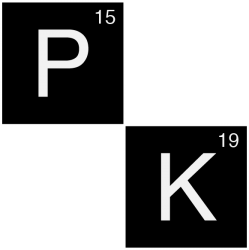Description
Concurrent diseases affecting the patient, including the one for which the drug is used, can modify drug response. As discussed below, diseases of the organs of elimination, e.g the liver and the kidneys, are responsible for large variations in drug pharmacokinetics. Circulatory disorders are also important in pharmacokinetic variability. Diminished vascular perfusion of one or more parts of the body is encountered in conditions such as cardiac failure. This diminished perfusion can affect the different pharmacokinetic mechanisms:
- perfusion of the absorption sites influences absorption,
- variation of body perfusion may alter the drug distribution to certain organs,
- perfusion of the liver and kidneys affect the metabolism and excretion of the drug.
Drugs that are largely metabolized in the liver are affected by liver diseases such as cirrhosis. Biliary excretion may be altered by conditions such as obstructive jaundice. It is worthfull to remind that hepatic disorders affect not only the metabolism and excretion of drugs but also their absorption (through first-pass effect) and distribution (through protein binding). In conditions such as cirrhosis, oral bioavailability of drugs undergoing a substantial hepatic first pass effect can be greatly increased. In patients with hepatic impairment, there is a decrease in plasma protein synthesis by the liver. This decrease may affect the volume of distribution of drugs that are extensively bound to these proteins.
In patients with a compromised renal function, urinary excretion of drugs is diminished. Therefore, the clearance of many drugs is also reduced. In first approxiamation, this reduction is proportional to the decrease in renal function. Notice that renal diseases may also affect the pharmacokinetics of drugs eliminated through metabolism. For example, insufficient excretion of metabolites can induce toxicity. Also, uremia decreases the liver enzymatic activity and displaces drugs from plasma proteins.

Clinical implications
Special attention should be given to the evaluation of the patients renal and hepatic function, and the dosage regimen of many drugs should be adapted if an organ impairment is observed.
During repeated administration, care should be given while adapting the dosage regimen in patients suffering from conditions that diminish the clearance of the drug. In such conditions, toxic accumulation may occur. Also, the half-life of the drug is prolonged and therefore, the time needed to reach steady state is longer.
Assessment
For renal failure, creatinine clearance (CLcr) is considered to be a suitable marker of renal function and is used for dosage adaptation.
There is no widely accepted marker to quantify the hepatic function.

